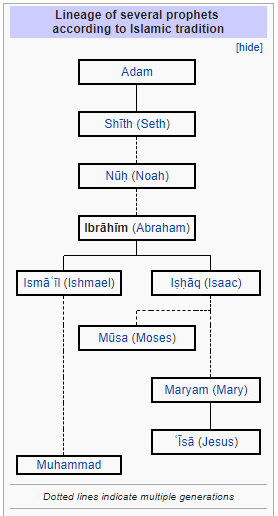Let’s get a few things straight,
- A person who prefers a vegetarian or vegan diet can be a true and practicing Muslim. (S)He can fulfill all his or her religious duties. It is NOT mandatory for a Muslim to consume non-vegetarian food (Since I don’t like Mutton, I usually get a “Mutton nahi khate? What kind of Muslim are you?” comment every now and then)
- The very basis of Islam is a doubtless belief on the central religious book – the holy Quran. Quran includes stories of about 25 prophets including Musa (known as Moses in Judaism), Isa (known as Jesus in Christianity) among others
- Animal sacrifice does not eliminate your sins. In certain cultures, animal sacrifice is considered as “washing away sins”, that is not the case in Islam
So if this doesn’t ‘wash away sins’ and it is not mandatory to eat non-vegetarian food in Islam, what exactly is the reason for animal sacrifice on Eid al-Adha?
Story of Animal Sacrifice in Islam

The story begins with Ibrahim (known as Abraham in Judaism and Christianity) being commanded by God to sacrifice his dearest possession, his son Ismail. When Ibrahim told his son about the divine command, the young boy urged his father to comply with God’s will
However, when Ibrahim attempted to cut his son’s throat, God informed Ibrahim that this was only a trial and a test to see if Ibrahim was true to his word. God ransomed the life of Ismail and commanded Ibrahim to slaughter and sacrifice a ram (a male sheep). God then honored these great Prophets and made their act an obligatory rite for the Hajj pilgrimage as a remembrance and a commemoration of their momentous sacrifice amongst the generations to come until the end of time
Christians recognize this story from the Bible. This story also appears in Judaism and is known as the ‘Akedah’. Since Prophet Muhammad (PBUH) belongs to the progeny of Ismail, this event becomes very important in Islam
It should also be noted here that Ibrahim and Ismail reconstructed Mecca’s Kaaba in stone and mortar structure. Kaaba was first built by Adam but was destroyed in the great flood at the time of Nuh (known as Noah in Judaism and Christianity). Around 2 million Muslims perform the annual Hajj pilgrimage in Mecca. The Kaaba is one of the holiest places in Islam. This again points to the importance of the life of Ibrahim in Islam

When is Eid al-Adha?
Eid al-Adha is the 10th day of the Islamic month ‘Dhul Hijjah’ which, like the month of Ramadan, is one of the holiest months. It also marks the end of Hajj, the annual pilgrimage

Eid Qurbani – Which animals can be sacrificed?
Usually sheep, goat, cows and camels are sacrificed across the World. Due to Muslims traditionally sacrificing a goat, Eid al-Adha is also known as Bakra Eid in the Indian subcontinent. It should be noted that the animals have to meet certain standards in order to qualify for a sacrifice. They cannot be ill, blind, visibly lame or emaciated. A minimum age restriction also applies
Eid Feast
It is suggested that the meat be divided into three parts,
- One is to be shared with family, friends and neighbors
- Another is to be distributed among the poor and needy
- And one part is for yourself and your immediate family
However this division is not compulsory and one is free to donate the entire portion, if (s)he may so prefer
Bottom line
Eid al-Adha is often misunderstood by those outside the Islamic faith. It is often linked to animal cruelty which is totally opposite to what the festival symbolizes. How can one sacrifice an animal that is not dear to them especially since this is part of the day that commemorates the test of willingness to give up something beloved on God’s command. A sacrifice is a sacrifice only when one gives up something dearly loved

Ibrahim had shown that his love for God superseded all others. That he would lay down his own life or the lives of those dearest to him in submission to God’s command. Muslims commemorate this ultimate act of sacrifice every year on Eid al-Adha.
While Ibrahim was prepared to make an ultimate sacrifice, God prevented it, additionally signifying that one should never sacrifice a human life, especially not in the name of God